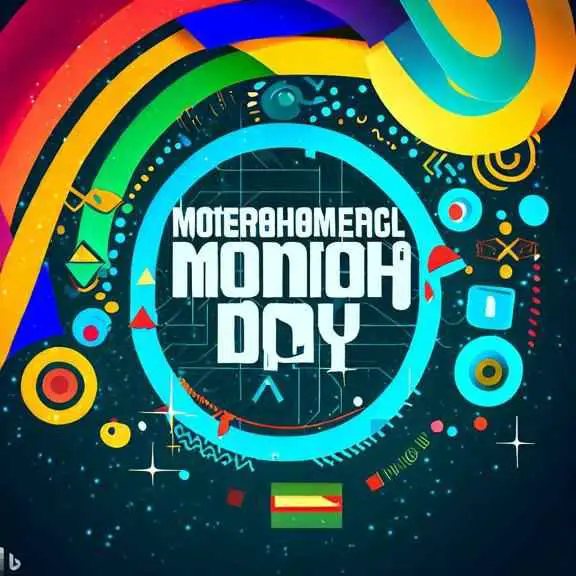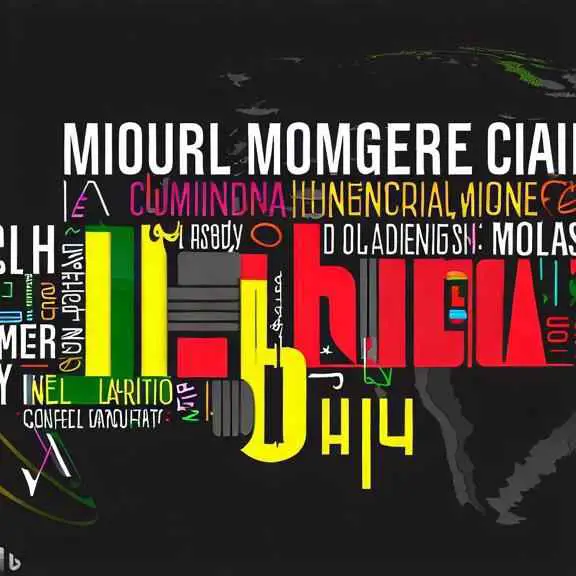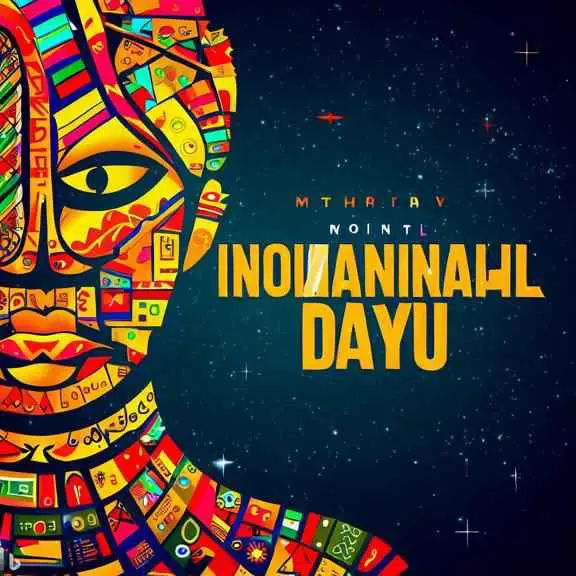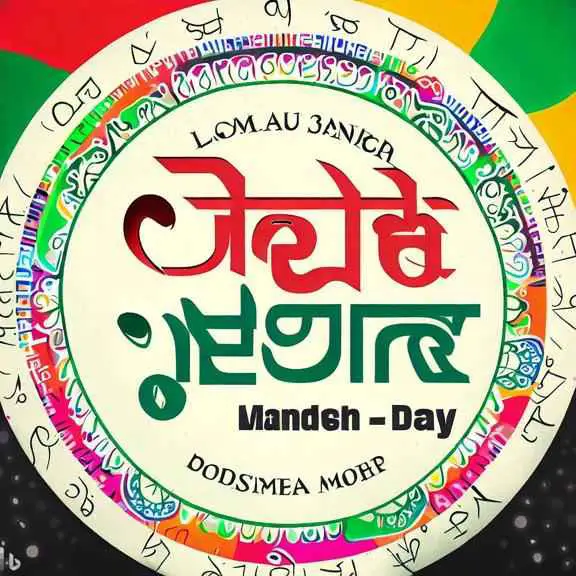Paragraph on
International Mother Language Day
for all Class, Words
by Culture on
International Mother Language Day, celebrated on the 21st of February every year, is a day dedicated to promoting linguistic and cultural…, please continue reading.

Table of Content
Ad
The Paragraph on International Mother Language Day
Ad
International Mother Language Day, celebrated on the 21st of February every year, is a day dedicated to promoting linguistic and cultural diversity around the world. The day was first observed in 2000, following a resolution by the United Nations Educational, Scientific and Cultural Organization (UNESCO). It has since become a globally recognized celebration of the world’s many languages and cultures, and an opportunity to reflect on the importance of preserving and promoting them.
This day has its roots in the Bengali Language Movement, which began in 1948 during British colonial rule in what is now Bangladesh. When the government of Pakistan declared Urdu the only national language of the country in 1948, the Bengali-speaking population protested, demanding equal recognition of their mother tongue. Eventually, their persistence paid off, and in 1952, hundreds of thousands of students and activists gathered in Dhaka, the capital of East Pakistan, to demand official status for Bengali. The police opened fire on the protesters, killing several of them. This event is now known as the Language Martyrs’ Day and has become a symbol of the Bengali people’s struggle for linguistic and cultural rights.
International Mother Language Day celebrates the bravery and resilience of the Bengali Language Movement and recognizes the importance of preserving and promoting linguistic diversity worldwide. It is an opportunity to raise awareness of the many benefits of speaking more than one language and to support efforts to preserve endangered and minority languages. Studies show that speaking multiple languages can enhance cognitive abilities, improve job prospects, and promote cross-cultural understanding and empathy.
Overall, International Mother Language Day is a reminder that languages are not only a means of communication but also a vital part of our cultural heritage. By celebrating our linguistic diversity, we can promote understanding and respect for different cultures and build a more peaceful and inclusive world.

Questions about International Mother Language Day
Ad
Questions and Answers:
- What is International Mother Language Day?
A: International Mother Language Day is a day dedicated to promoting linguistic and cultural diversity around the world.
- When is International Mother Language Day celebrated?
A: International Mother Language Day is celebrated on the 21st of February every year.
- Who initiated the resolution for International Mother Language Day?
A: UNESCO initiated the resolution for International Mother Language Day.
- What was the Bengali Language Movement?
A: The Bengali Language Movement began in 1948 during British colonial rule in what is now Bangladesh.
- Why did the Bengali-speaking population protest?
A: The Bengali-speaking population protested because the government of Pakistan declared Urdu the only national language of the country in 1948.
- What happened in Dhaka in 1952?
A: Hundreds of thousands of students and activists gathered in Dhaka, the capital of East Pakistan, to demand official status for Bengali.
- What is Language Martyrs’ Day?
A: Language Martyrs’ Day is the event where the police opened fire on the protesters, killing several of them, in Dhaka on 21st February 1952.
- What are the benefits of speaking more than one language?
A: Studies show that speaking multiple languages can enhance cognitive abilities, improve job prospects, and promote cross-cultural understanding and empathy.
- What is the importance of preserving endangered and minority languages?
A: Preserving endangered and minority languages is important because it helps to maintain cultural and linguistic diversity.
- What is the significance of International Mother Language Day?
A: International Mother Language Day celebrates the bravery and resilience of the Bengali Language Movement and recognizes the importance of preserving and promoting linguistic diversity worldwide.

Vocabulary related to International Mother Language Day
Ad
Vocabulary Words:
- Linguistic: relating to language or linguistics; the study of languages
Usage: Linguistic differences can sometimes lead to misunderstandings between people.
Synonyms: language-related, verbal, speech-based
Antonyms: nonverbal, non-linguistic
- Cultural: relating to the ideas, customs, and social behavior of a society
Usage: Cultural differences between nations can be fascinating and informative to explore.
Synonyms: societal, ethnic, traditional
Antonyms: unconventional, bizarre, unorthodox
- Diversity: a range of different things or people
Usage: The beauty of nature lies in its diversity.
Synonyms: variety, assortment, range
Antonyms: uniformity, sameness
- UNESCO: United Nations Educational, Scientific and Cultural Organization
Usage: UNESCO works to encourage international cooperation in science, education, and culture.
- Resilience: the capacity to recover quickly from difficulties
Usage: Resilience is a valuable trait to have in a rapidly changing world.
Synonyms: flexibility, adaptability, toughness
Antonyms: fragility, vulnerability
- Cognitive: relating to mental processes such as perception, memory, and problem-solving
Usage: Cognitive psychology studies how the mind processes information.
Synonyms: mental, intellectual, thinking
Antonyms: physical, sensory
- Empathy: the ability to understand someone else’s feelings or experiences
Usage: Empathy is an important leadership trait that helps build strong relationships.
Synonyms: compassion, sympathy, understanding
Antonyms: apathy, callousness
- Inclusive: including as many people or things as possible
Usage: An inclusive community is one that welcomes and supports people from all backgrounds.
Synonyms: diverse, broad-minded, accepting
Antonyms: exclusive, narrow-minded
- Heritage: something that is passed down from previous generations
Usage: Our cultural heritage includes our language, customs, and traditions.
Synonyms: legacy, inheritance, tradition
Antonyms: innovation, modernization
- Endangered: at risk of extinction or disappearance
Usage: The conservation of endangered species is an urgent priority for many environmental organizations.
Synonyms: threatened, vulnerable, perilous
Antonyms: safe, secure
- Martyr: a person who is willing to suffer or die for a cause they believe in
Usage: The language martyrs who sacrificed their lives for their mother tongue are remembered every year on 21st February.
Synonyms: hero, champion, sufferer
Antonyms: coward, traitor
- Recognition: acknowledgment or appreciation of something or someone’s worth or validity
Usage: The government’s recognition of the Bengali language movement was a significant milestone in the struggle for linguistic rights.
Synonyms: acknowledgement, appreciation, approval
Antonyms: ignorance, neglect
- Persistence: the continued or prolonged existence of something
Usage: The persistence of poverty in many parts of the world is a complex issue that requires long-term solutions.
Synonyms: perseverance, determination, tenacity
Antonyms: apathy, indifference, surrender
- Promotion: the activity of encouraging a particular product, service, idea, or organization
Usage: The promotion of cultural diversity is vital for creating a more tolerant and inclusive society.
Synonyms: advertising, marketing, advocacy
Antonyms: discouragement, opposition
- Symbol: a representation of something else, usually through an object, action, or event
Usage: The language martyrs’ day is a symbol of the Bengali people’s struggle for linguistic and cultural rights.
Synonyms: emblem, representation, sign
Antonyms: reality, actuality, concrete

Structure of the sample "International Mother Language Day" paragraph
Ad
Cohesion and Coherence:
The paragraph on International Mother Language Day is well-structured with a clear introduction, body, and conclusion. The writer has used effective transitions to connect ideas and maintain coherence throughout the paragraph. For example, the writer introduces the origins of the day as rooted in the Bengali Language Movement and then transitions into discussing the benefits of speaking multiple languages. The writer also uses language effectively to create cohesion, repeating key phrases like “linguistic and cultural diversity” and “preserving and promoting linguistic diversity” to link related ideas. Overall, the paragraph is well-organized, easy to follow, and effectively conveys the importance of International Mother Language Day.
